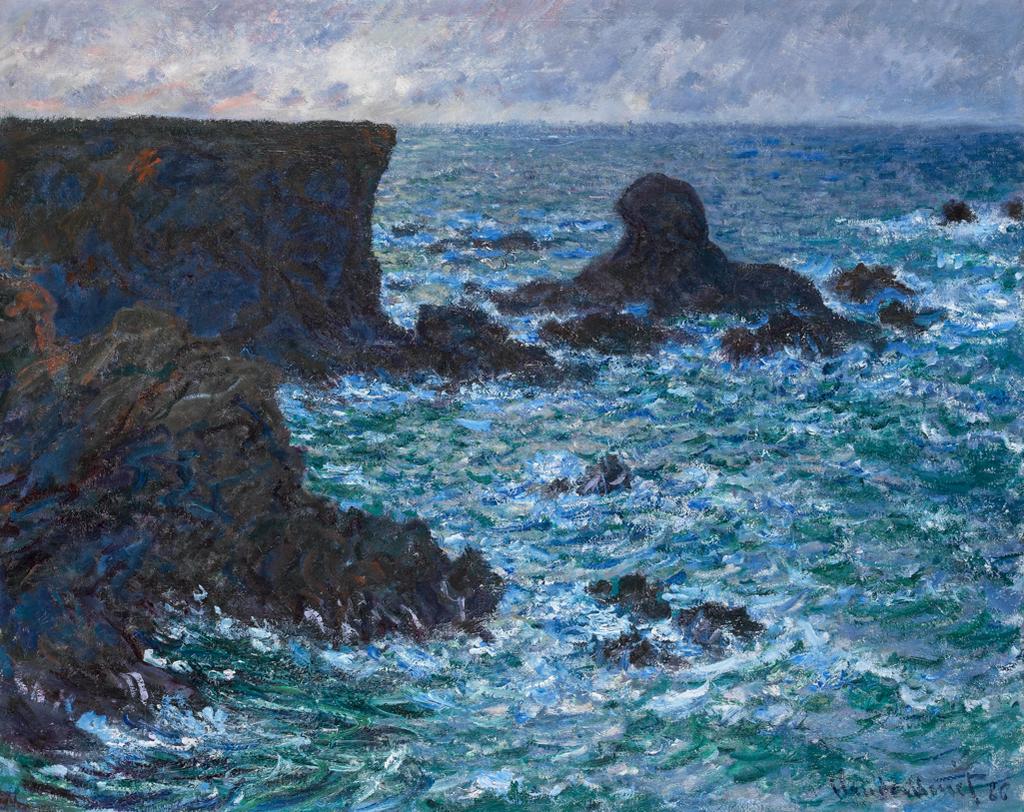Look and Think activities should take 5 -10 minutes.
Do activities might take longer depending on the task and how creative you are feeling!
Rocks at Port-Coton, The Lion Rock, Claude Monet (1840 – 1926), 1886
Oil on canvas, 65 x 81 cm, PD.27-1998
Look
This picture has two names: Rocks at Port Coton & Lion Rock. Look closely. Can you spot a rock in the shape of a lion?
What colours has Monet used to paint the choppy sea?
Watch the story of ‘The Horse and Lion’ which was inspired by this painting.
Think
Monet painted some of his favourite places lots of times. He painted this coastline 39 times over 10 weeks!
Spend some time in your favourite outdoor spot. Think about how it changes at different times of the day, different weather, or seasons throughout the year.
Do
Watch artist Hannelore Smith’s top tips for making your very own wax resist watery landscapes.

Monet visited the so-called ‘wild coast’ of Brittany for the first time in the autumn and winter of 1886. He had planned to stay only ten days, but ended up spending ten weeks, based in a tiny hamlet only five hundred metres from the rugged coastline. This is one of thirty-nine paintings made during his stay.
French writer Emile Zola praised Monet for his extraordinary ability to paint water. He wrote that in Monet’s paintings water was always, ‘alive, deep, and above all real’. If you compare this painting to other seascapes by Monet, such as The Rock Needle and Porte d’Aval, Etretat, you can see how sensitively Monet responded to the different moods of the sea to paint both stillness and movement.
The idea of painting the same thing over and over again may well have been inspired by Japanese prints, which were widely circulated among artists in Paris. Monet is thought to be influenced by the bold colours, the inventive compositions, the relative flatness, and the fact they are drawn from everyday life. Monet’s house in Giverny, has a large collection of Japanese prints.
You can find out more about Claude Monet and the other French Impressionist artists in the collection at The Fitzwilliam Museum in this online exhbition.
Download this Look Think Do as a PDF or Word document.